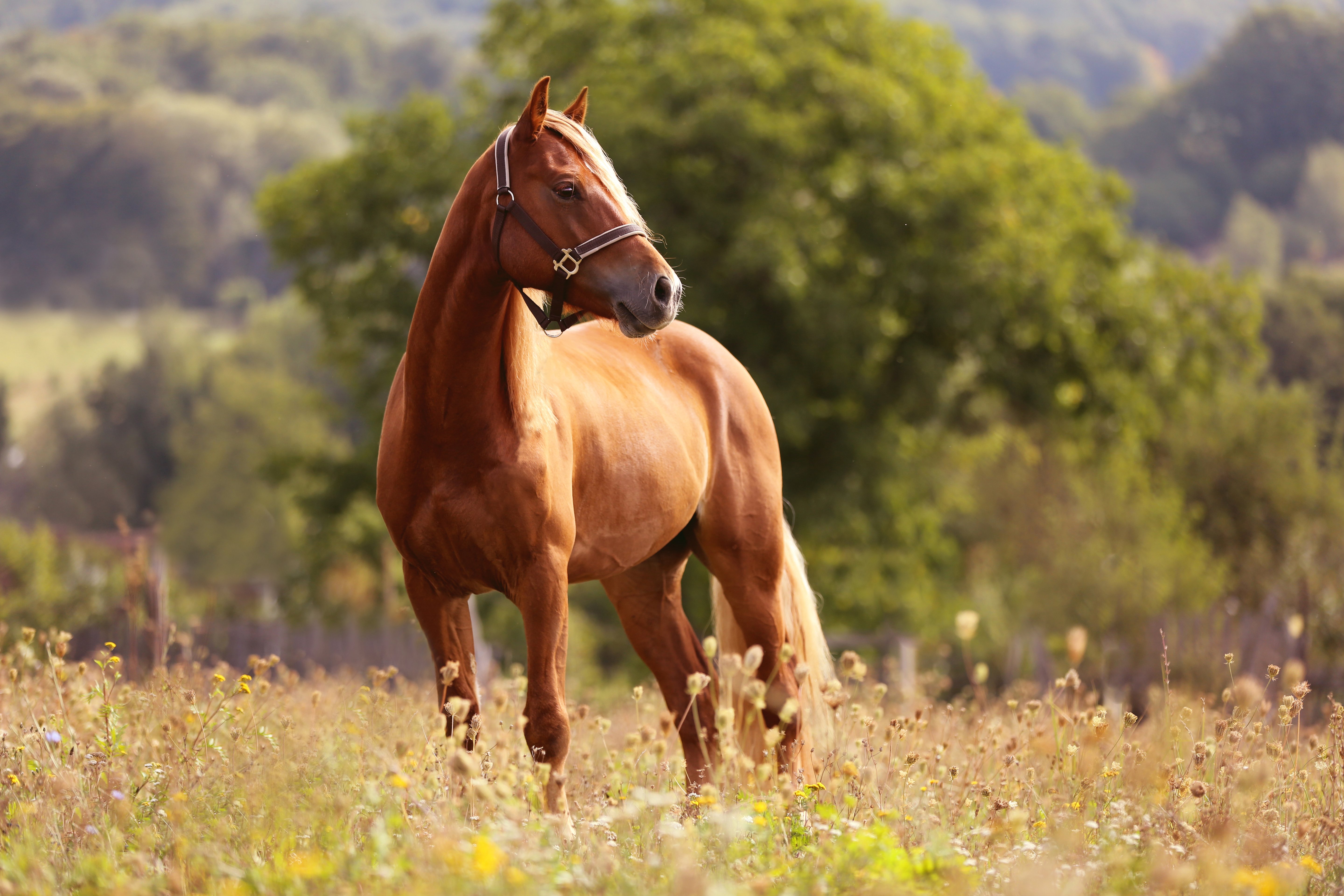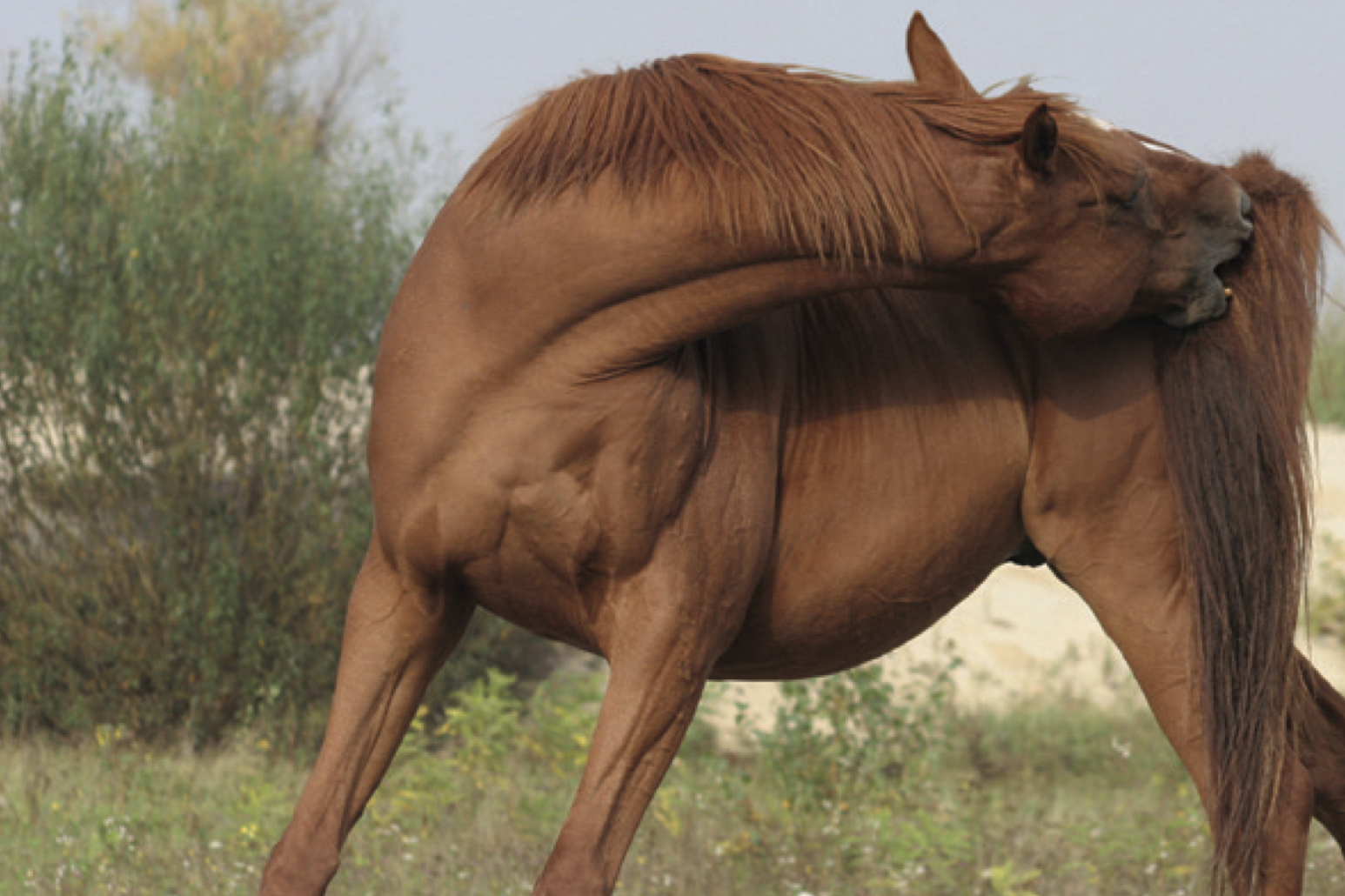
Allergy in Horses
Like people or others pets, horses can have allergies too. Their immune system over-reacts to harmless everyday substances. Horses can be exposed to these substances, also called allergens, by breathing them in or eating them, but most often it is through direct contact of the allergen with the horse’s skin.
Signs and types of allergy
If the horse’s immune system recognises these allergens and labels them as ‘foreign’, rather than as a harmless substance, it starts producing inflammatory agents that initiate an allergic reaction. Allergies can be hereditary but can also develop over time after repeated exposure to an allergen. The first signs of allergy usually appear in horses aged between 1 and 6 years.
Some horses have more than one type of allergy. They may have insect-bite hypersensitivity and atopy (environmental allergy). The symptoms of these different types of allergies can be very similar, making it hard to distinguish between them.
How can I tell if my horse might have an allergy?
Allergy is very common in animals – 1 of 5 pets are allergic to something. Unfortunately, many of them are not diagnosed or treated because some symptoms can be mistaken for normal behaviour.
The most common symptoms are itching and scratching, licking, biting and rubbing and hair loss. It is important to know what to look for in your horse.
Insect-bite hypersensitivity (allergy to insects)
This is the most common allergy in horses. They are allergic to proteins in insect saliva, especially biting midges (Culicoides). Biting midges feed on their blood and that of other farm animals.
They typically attack near areas of water, at dusk and dawn. Certain breeds of horse seem to be at greater risk of developing insect-bite hypersensitivity, such as Welsh, Shetland and Connemara ponies, Friesian, German Shire, Arabian and Quarter horses and imported Icelandic horses.
Allergy to environmental allergens (atopy)
Atopy is the second most common type of allergy found in horses. It is an inherited allergy to substances in the horse’s environment such as plant pollen (grasses, weeds and trees), or house-dust mites, storage mites, mould and dander (flakes of skin).
Horses that are allergic to indoor allergens like dust or storage mites, dander and mould mainly show symptoms when they are stabled.
Certain breeds seem to be at higher risk of developing atopy, such as Thoroughbreds, Quarter horses, Warmbloods, Arabians and Morgans. Males are almost twice as likely to have atopy than mares.
-

Iching and scratching is a common symptom of allergy
How can I know or confirm that my horse is allergic?
Not all itchy skin or scratching is due to allergies – other diseases cause similar signs. For this reason, your vet will start by excluding all other potential causes of the symptoms, such as parasites and infections.
If the allergy symptoms remain after excluding or treating such causes, the next step is to exclude the possibility of food allergy, contact allergy and drug allergy. Then the vet needs to identify which environmental allergens are responsible.
This is done with a quick and simple blood test, the NextEQuine blood test. This step is essential, because without knowing which allergens are causing the problem it is not possible to avoid them or treat your horse.
Allergy treatment for horses
Allergies are chronic and need lifelong management. Avoiding allergens like dust mites and pollen is ideal but often impractical. Alternatives include immunotherapy, topical treatments and managing flare ups.
Immunotherapy – The only way to treat the cause of the disease
The best way to treat an allergy is to avoid contact with the allergens that are causing the problem. However, this is practically impossible, especially with environmental allergens like pollens or insects.
The only treatment that can make your horse’s immune system stronger, to stop reacting to the allergens, is immunotherapy (also called allergen-specific immunotherapy).
This is a tailored treatment for your horse that will stop the symptoms from affecting its overall health, comfort and quality of life.
Key facts about allergy in horses
- Allergy is very common in horses.
- You must be aware of any signs that may indicate an allergy. Most of them can be seen as normal behaviour, so it is important to do an allergy check-up with your vet.
- It is very important to identify which allergens are the cause of the allergy so they can be avoided and the horse can be treated.
The first choice for treating allergy is immunotherapy, a customised, all-natural treatment that is safe, effective and doping-free (for sports horses).